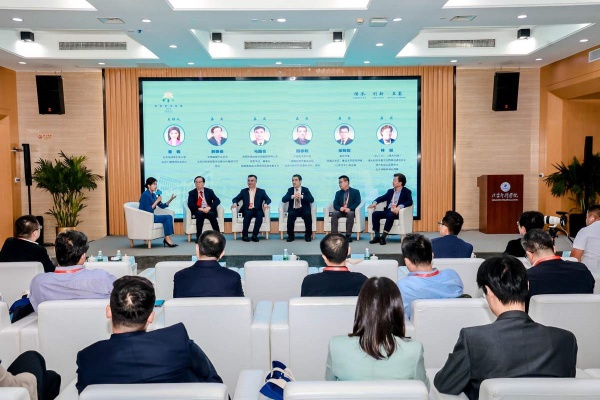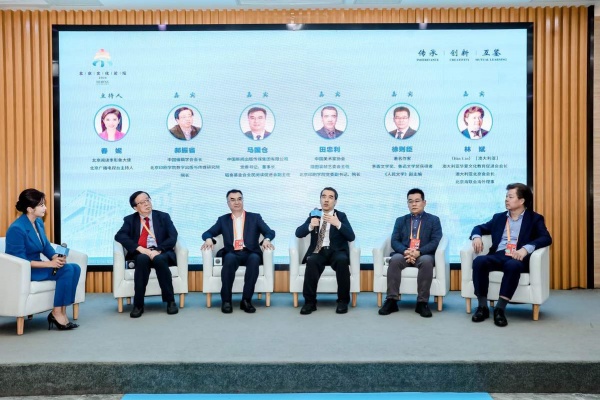
- Home
- Media Center
-
Events
- Wuzhen Summit
- Regional Forums
- Practice Cases of Jointly Building a Community with a Shared Future in Cyberspace
- World Internet Conference Awards for Pioneering Science and Technology
- The Light of Internet Expo
- Straight to Wuzhen Competition
- Global Youth Leadership Program
- WIC Distinguished Contribution Award
- Membership
- Research & Cooperation
- Digital Academy
-
Reports
- Collection of cases on Jointly Building a Community with a Shared Future in Cyberspace
- Collection of Shortlisted Achievements of World Internet Conference Awards for Pioneering Science and Technology
- Reports on Artificial Intelligence
- Reports on Cross—Border E—Commerce
- Reports on Data
- Outcomes of Think Tank Cooperation Program
- Series on Sovereignty in Cyberspace Theory and Practice
- Other Achievements
- About WIC
- 中文 | EN

Role of AI in reading, publishing discussed

Scholars, publishers and writers talked about how AI is reshaping the landscape of reading at a salon at Beijing Institute of Graphic Communication on Friday. [Photo provided to China Daily]
A salon about the role of artificial intelligence, or AI, within the realm of reading took place at the Beijing Institute of Graphic Communication on Friday, as part of the Beijing Cultural Forum.
The salon, Cultural Trend: Artificial Intelligence Empowers a New Wave of Reading for All, included a space where AI could be experienced in addition to a dialogue session.
Within the experiencing space, visitors could get to know the past, present, and future of reading through various demonstrations, including items about hand scrolls and traditional binding techniques, traditional thread-bound book binding, 3D ink animation, digital multimedia interactive works, AI-powered copyright asset production platforms, monocular camera motion capture devices, AI publishing assistants, and 5G reading.
The three-day Beijing Culture Forum opened on Thursday and was themed Enhance Cultural Exchanges for Common Progress.
Discussions at the dialogue session focused on how AI is reshaping the publishing industry and enhancing personalized reading spaces.
Scholars, publishers, and writers talked about the role of editors in the evolving publishing landscape, AI's potential in children's literature, and the importance of balancing AI advancements with preserving originality in literary works.
Participants also explored the transformative impact of AI on reading habits, the revitalization of ancient texts through digital platforms, and the global reach of digital reading for Chinese language learners.

Scholars, publishers and writers talked about how AI is reshaping the landscape of reading at a salon at Beijing Institute of Graphic Communication on Friday. [Photo provided to China Daily]

The World Internet Conference (WIC) was established as an international organization on July 12, 2022, headquartered in Beijing, China. It was jointly initiated by Global System for Mobile Communication Association (GSMA), National Computer Network Emergency Response Technical Team/Coordination Center of China (CNCERT), China Internet Network Information Center (CNNIC), Alibaba Group, Tencent, and Zhijiang Lab.





